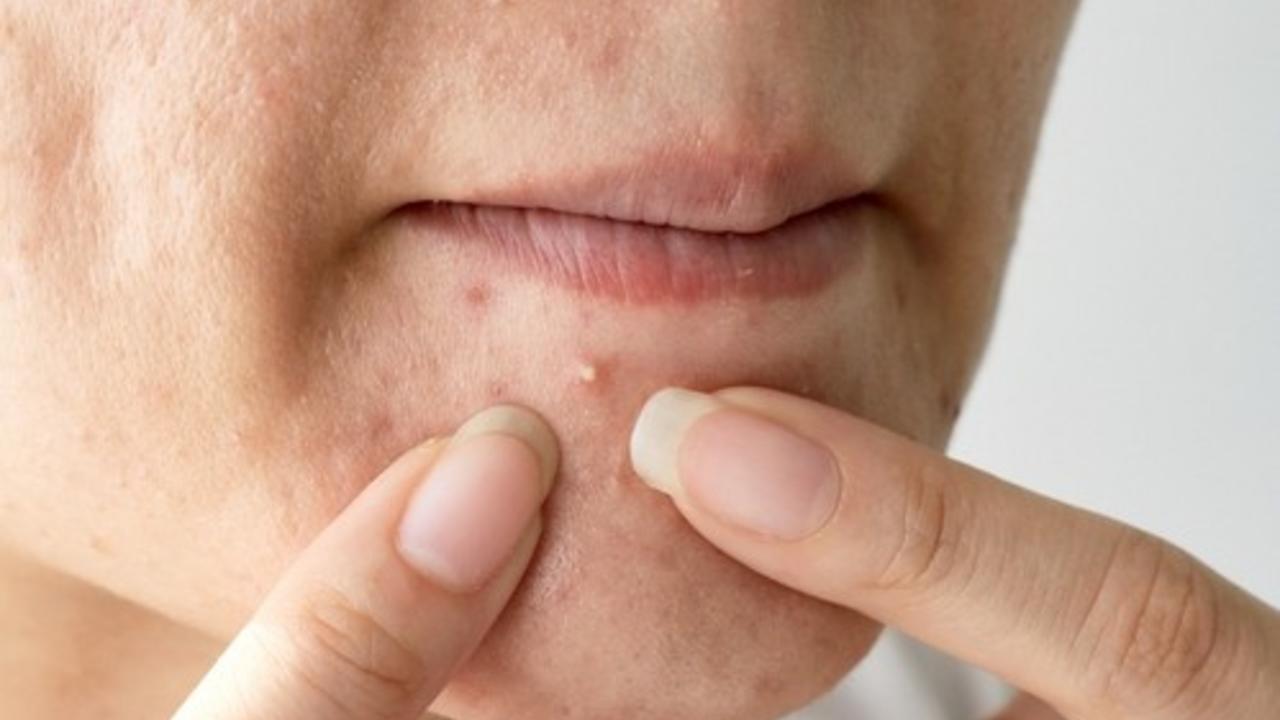Menopausal Acne

The skin changes in various ways during the menopausal transition and unfortunately incidents of menopausal acne are on the rise. Research is now finding that between 20-40% of menopausal women are struggling with acne. Acne does not reduce your quantity of life but it can reduce your quality of life. Some women withdraw as they are embarrassed by the look of their skin and other women find the acne physically uncomfortable, as cystic growths can be painful.
There are various potential underlying causes:
- Hormone imbalance
- Thyroid dysfunction
- Insulin resistance
- Adrenal dysfunction
- Genetic factors
- Dietary factors
- Lifestyle factors
- Smoking
- UV light exposure
- Certain medications
- Imbalanced skin microbiome
With hormonal changes during the menopausal transition, estrogen levels fall rapidly while androgens (testosterone) decrease gradually causing a relative androgen dominance. For a small number of women (roughly 7%) it is an elevated androgen result but for most women it's a ratio imbalance of more androgens to estrogen causing a relative androgen dominance.
Other hormonal causes contributing to acne:
- Elevated LH (luteinising hormone) as androgen secretion is dependant on LH levels and LH levels rise with menopause
- Lower SHBG (sex hormone-binding globulin) as SHBG can lower the free androgen count but its levels itself is lower in menopause.
- Elevated prolactin can also trigger the production of acne
Relative androgen excess can also cause hirsutism (facial hair in women) and increased terminal hair growth (longer facial hair). It can also cause alopecia (head hair loss)
Metabolic syndrome and insulin resistance is another major cause of acne. Insulin promotes sebum production and epithelial cell proliferation. It is also linked with the development of skin tags. Elevations in insulin-like growth factors in combination with DHEA produce more intense acne outbreaks.
Stress aggravates acne as stress releases melanocortins and corticotrophin-releasing hormones and these hormones increase the expression of 3beta hydroxy-steroid dehydrogenase mRNA, this enzyme converts DHEA to testosterone, further promoting an androgen dominance.
The imbalanced skin microbiome. Too many of the bad skin bacteria and not enough of the good ones cause acne to develop. Cutibacterium acnes known as C. acne promotes acne development, while S.epidermidis inhibits the growth of c.acne. Biofilm formation around the skin microbiome can lead to the persistence of stronger and more pathogenic bacteria strains such as staphylococcus aureus.
Lifestyle tips to include:
- Optimise your weight
- Optimise your amount of exercise
- Make sure you are getting adequate sleep
- Decrease stress levels in general
- Quit smoking if you smoke
- Remove makeup before bed
- Make sure you are having regular bowel movements, constipation increases your toxin load and can show in your skin as its a secondary elimination pathway.
Lifestyle tips to avoid
- Avoid frequent washing (1-2 daily MAX, even water disturbs the skins delicate pH balance)
- Review all facial products and remove all oil-based cosmetics
- Avoid scrubs
- Avoid popping and picking
- Avoid tanning
Dietary advice
- Maintain good hydration levels
- Avoid sugar
- Avoid dairy
- Avoid insulin spiking carbohydrates (grains)
- Increase consumption of beneficial anti-inflammatory oils such as fish oil
- Avoid deep-fried or processed “bad” fats
- Increase soluble fibres
- Increase anti-oxidant rich fruit and vegetables
Tests to consider:
- Reproductive Hormones: Testosterone, SHBG, DHEAS, Prolactin, LH, FSH, Androstenedione
- Thyroid function: TSH
- Metabolic syndrome testing: Insulin, glucose, lipid profile
- Skin microbiome testing
Supplements to consider:
- Zinc - major building block for healthy skin
- Fish oil
- Other antioxidants - Vitamin A, Vitamin C
- Probiotics - SB
- Herbal medicine
Cosmetic procedures to consider:
- Chemical peel
- Laser therapy
Medical treatment
- Topical retinoids - not well tolerated, linked to many side effects such as burning, itching, skin peeling and photosensitivity
- Anti-androgen medication
- Systemic antibiotic therapy - being phased out
Resources
https://www.youtube.com/watch?v=WrLZMmZjDVQ
https://www.ncbi.nlm.nih.gov/pmc/articles/PMC6825478/#!po=54.0000


